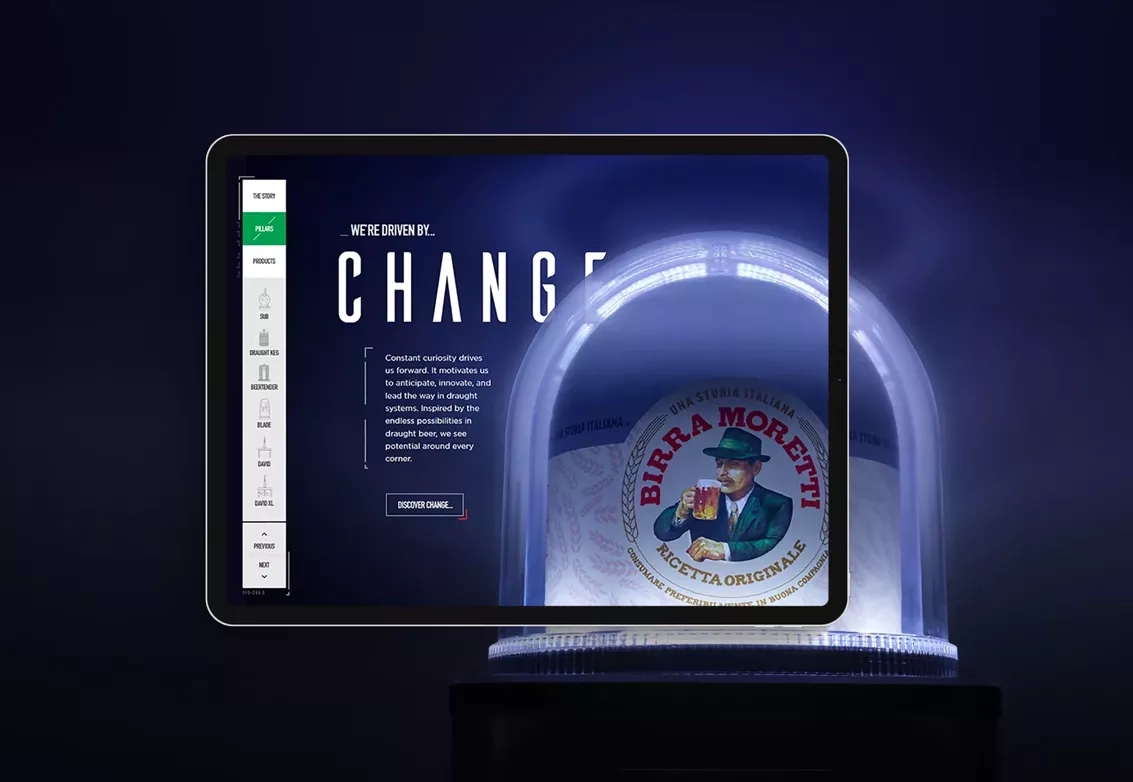
Marketing insights
Marketing in a recession: navigating through uncertainty with confidence
Amidst economic downturns, companies like Peloton capitalized on the home fitness wave, Hyundai offered job loss protection to car buyers, IBM pivoted to value-centric solutions, and McDonald's marketed affordable comfort food, all leading to remarkable growth. These strategies highlight how bold marketing and market insight can transform challenges into opportunities, setting companies on the path to leadership in their respective industries.
Amidst economic downturns, companies like Peloton capitalized on the home fitness wave, Hyundai offered job loss protection to car buyers, IBM pivoted to value-centric solutions, and McDonald's marketed affordable comfort food, all leading to remarkable growth. These strategies highlight how bold marketing and market insight can transform challenges into opportunities, setting companies on the path to leadership in their respective industries.
Thriving in adversity: The power of bold marketing during economic downturns
When the going gets tough, the tough get going, or so the saying goes. This couldn't be more true for businesses facing economic downturns.
In times of economic downturns, the instinct might be to cut back on marketing, but history tells us a different story. Companies that have dared to advertise boldly, even during tough times, have not just survived; they've flourished and emerged as market leaders.
Let's dive into this not-so-secret strategy, unpacking how companies like Coca-Cola, Peloton, Hyundai, IBM, and McDonald's didn't just weather the storm; they danced in the rain and came out leaders.
These companies grasped something fundamental: tough times call for bold strategies. They knew that blending bold marketing with insights into market changes was like finding the map to a buried treasure.

Peloton pedals ahead
2020 hit us like a truck, and Peloton took it as a signal to pedal harder. They zoomed in on their all-in-one home fitness solution, tapping into our newfound homebody lifestyle.
Embracing the home workout revolution
As the world pivoted indoors during the pandemic, Peloton quickly adapted, intensifying its marketing to spotlight its all-in-one home fitness solution. By seamlessly integrating into the new normal of home workouts, Peloton ensured its services were more than a convenience; they were a necessity.

Fostering community in times of isolation
Understanding the yearning for connection during the lockdowns, Peloton didn't just sell exercise equipment; it built a community. Highlighting the social connectivity of its platform, Peloton transformed solitary workouts into shared, motivational experiences, broadening its appeal.
Unprecedented sales surge demonstrates strategic mastery
Peloton's strategic agility paid off spectacularly, with the company witnessing a remarkable 172% surge in sales in Q2 of 2020. This impressive growth trajectory underscored the power of Peloton's responsive, counter-cyclical marketing strategy and its ability to turn challenging times into opportunities for growth.
Hyundai drives comfort in crisis
During the 2008-09 financial crisis, while industries grappled with consumer uncertainty and fear, Hyundai saw not just anxiety but a prime chance to reassure and differentiate themselves in a troubled market.
Hyundai's 2009 Strategy: Confidence in uncertainty
During the 2008-2009 global financial crisis, Hyundai recognized the widespread fear of job loss among consumers, which significantly impacted their purchasing decisions, especially for big-ticket items like cars.
Launching the Hyundai assurance program
In a groundbreaking move, Hyundai introduced the "Hyundai Assurance" program, a bold marketing initiative that allowed customers to return their cars if they lost their jobs within a year of purchase. This campaign wasn't just a marketing strategy but a powerful message of empathy and support to potential buyers during a time of widespread economic uncertainty.
Triumph in the automotive sector and financial growth
Hyundai's strategy turned out to be not just visionary but highly effective. The Assurance program significantly boosted consumer confidence and trust in the brand. As a result, Hyundai experienced a substantial increase in sales and market share during a period when the automotive industry as a whole was facing severe challenges. For instance, in 2009, while the total U.S. car market dropped by 21%, Hyundai's sales increased by 8%, a testament to the success of their consumer-focused approach during the recession.

IBM's smart pivot
During the 2008 financial downturn, IBM transformed its business strategy. Instead of just selling hardware and software, IBM aimed for bigger, value-focused solutions that met the needs of a changing world.
Identifying market needs & pivoting strategy
IBM wisely shifted its focus from products to value-centric solutions, aligning with the pressing needs of businesses to optimize operations and reduce costs during the economic slump.

Launching the 'Smart Planet' initiative
In a bold move, IBM introduced the 'Smart Planet' campaign, not merely as a global marketing strategy but as a visionary outlook that resonated with businesses striving for sustainable and efficient growth in the face of uncertainty.
Resulting business triumph
This strategic pivot was not just visionary but also profitable. IBM's commitment to innovation and adaptation resulted in a notable revenue increase, with a reported 9% growth in gross profit margin and a 12% rise in pre-tax income in 2008, showcasing the effectiveness of a well-orchestrated counter-cyclical business approach.
McDonald's: comfort on a budget
In response to the 1973 oil crisis, McDonald's recognized the growing demand for economical indulgences. They launched a marketing campaign that struck a chord with those looking for comfort without breaking the bank.
Adapting to consumer needs & economic realities
In response to the economic pressures of the 1973 oil crisis, McDonald's didn't retreat but recalibrated, launching the "You Deserve a Break Today" campaign. This initiative smartly tapped into the consumer's desire for affordable treats during challenging times, reinforcing McDonald's as a go-to for budget-friendly, comforting meals.
Embracing a consumer-centric approach
The campaign was not just a marketing tactic; It was a clear demonstration of McDonald's understanding of its customers' mindset during economic downturns. Offering value and convenience, the brand positioned itself as a source of comfort that was still within reach, even as household budgets tightened.
Culinary triumph and financial success
Proving to be more than just emotionally appealing, this marketing strategy was financially rewarding. Despite the recession, McDonald's fortified its market presence. The period following the campaign witnessed a remarkable growth in sales, customer visits, and market share, marking a period of sustained financial growth. This success not only underscored the resilience of McDonald's during economic downturns but also cemented its position as a leader in the fast-food industry.

A common theme across these examples highlights the critical roles of resilience, adaptability, and empathy within marketing strategies during economic downturns. These companies didn't just react to the challenges; they anticipated the evolving needs and emotions of their customers, crafting strategies that offered not just a product or a service, but a meaningful experience or a sense of security in uncertain times.
Moreover, these cases highlight the importance of innovation and forward-thinking. Whether it was McDonald's offering affordable comfort or IBM's Smart Planet initiative, each strategy was grounded in a deep understanding of future trends and customer desires, demonstrating that success in a recession requires not just reacting to the present but anticipating the future.
The underlying principle that emerges is the power of storytelling and authentic communication. Each of these companies succeeded by crafting compelling stories that resonated with their audiences, emphasizing not what they were selling, but why it mattered. In times of economic hardship, this approach transforms marketing from a business transaction into a human connection, underscoring the fact that the most effective marketing strategies are those that understand and reflect the human experience.

Find out more
Crafting a unique B2B content strategy to rise above the noise
This article outlines strategies for crafting standout B2B content in a crowded digital marketplace. It emphasizes personalized, expert-driven content tailored to specific niches and audience segments, leveraging industry collaboration, segmented series, visuals, and exclusive content to captivate and retain a loyal audience. The focus is on differentiation through unique value propositions and storytelling, aiming to transform visitors into dedicated followers.

Cargill Cocoa and Chocolate - positioning and branding
In rebranding Cargill Cocoa & Chocolate, we've positioned their new Big Chunks product as more than just an innovation; it's a narrative shift towards blending science with sensory experiences. This approach strengthens customer relations and boosts brand recognition by portraying Cargill not only as a provider of high-quality cocoa and chocolate products but also as an innovator at the intersection of science and delight. The campaign's success, marked by significant increases in inquiries and faster achievement of marketing goals, showcases the impact of integrating science into the brand story, making Cargill's offerings irresistibly appealing.

Johnson & Johnson Vision - rebranding a category
Johnson & Johnson Vision's rebranding initiative aimed to unify their extensive portfolio under one digital roof, enhancing accessibility to their products and eye health resources. This endeavor created a single platform that addresses the needs of professionals and consumers alike, emphasizing the universal importance of sight. By interweaving diverse brand narratives into one cohesive story, the new website spotlights human-centric innovation, serving as a comprehensive hub for eye health education and engagement. The campaign, enriched by real-life stories, elevates the brand’s commitment to improving vision for people worldwide.
argenx - branding
We partnered with argenx to craft a distinctive brand, rooted in authenticity and simplicity, telling their true and authentic story. This involved logo redesign and a global style guide to ensure brand consistency. Additionally, we developed a new website and produced a brand video. These efforts played a pivotal role in fueling argenx's remarkable journey of growth and success.

Veliche - branding
Our efforts aimed to encapsulate Veliche's commitment to empowering culinary innovators through a renewed visual identity and a compelling narrative, forging a stronger connection with their audience. The result was a brand transformation that resonated deeply with Veliche's mission and values.

